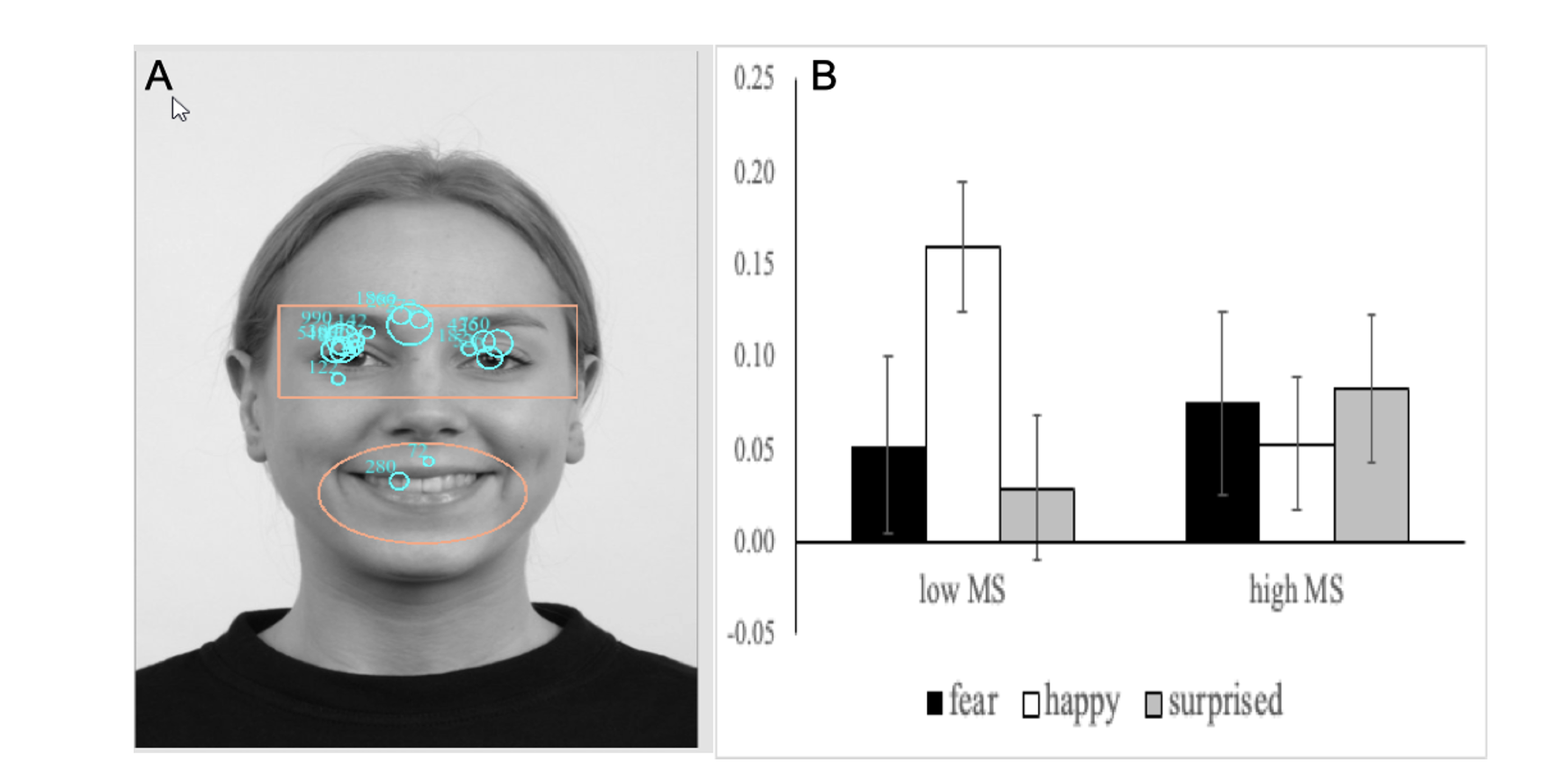
Emotion perception in women during the transition to menopause
Project Leader: prof. Sven Mueller
LOBI


DETAILS OF PROJECT
The menopausal transition brings with it many physical, cognitive, and affective changes in a woman`s life, impacting quality of life. Whereas prior work has examined impact on cognitive function, research on basic affective processing during menopause remains scarce. In this pre-registered project we used a median-split procedure and examined the impact of stronger (N=46 women) vs. milder (N=47 women) menopausal symptoms using a behavioural task of subjective emotion perception (embody) and a passive eye tracking viewing task of emotional faces in addition to self-report questionnaires. After 3-months follow-up, participants completed the questionnaires again to examine whether objective measures of emotion perception (eye tracking) might predict mental health at follow-up. As anticipated, women with high vs. low menopausal symptoms reported increased symptoms of anxiety, depression, stress, emotion regulation difficulties and lower quality of life during both time points. While no evidence was found in the behavioural task, eye tracking data indicated blunted emotion perception in women with high menopausal symptoms, while women with low symptoms spent more time looking at happy faces relative to fearful or surprised faces. Eye tracking or hormonal data did not predict mental health at follow-up. This study documented an impact of the menopausal transition and strength of menopausal symptoms in particular on objective emotion perception as well as mental health and quality of life in women suffering from strong vs. milder menopausal symptoms. These findings bear implications for quality of life of women during perimenopause. (NAWA - grant number BPN_ULM_2021_1_00201)